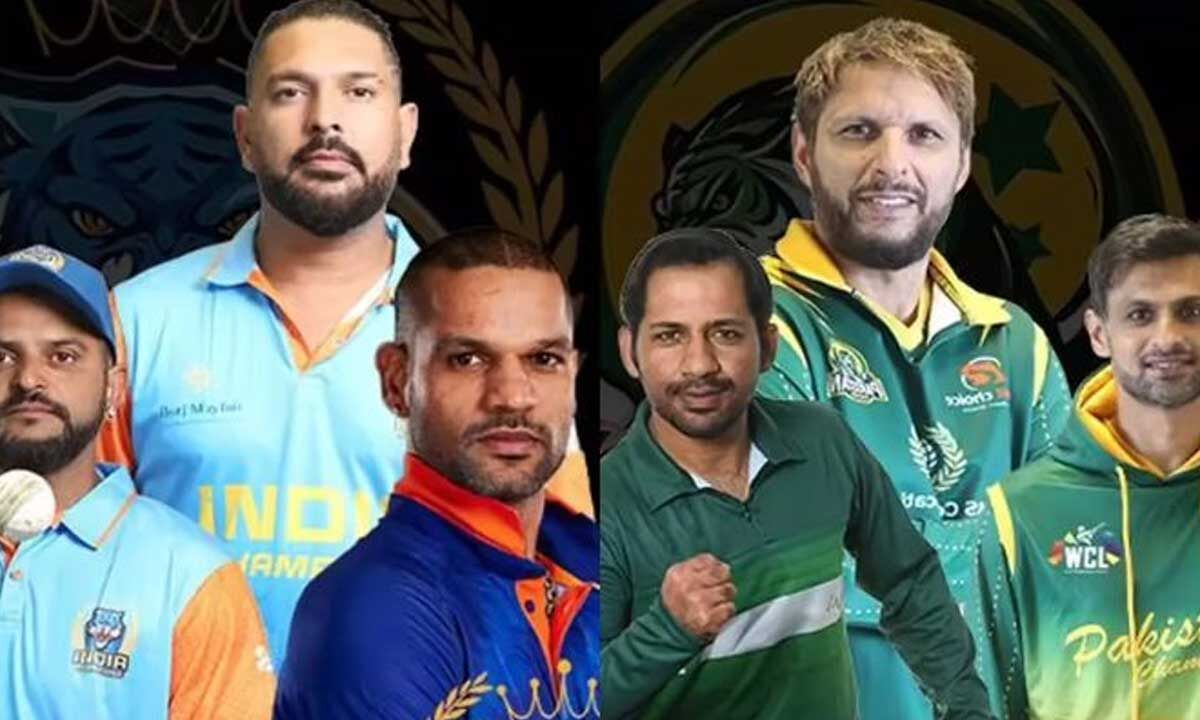The World Championship of Legends has officially called off the highly anticipated India-Pakistan cricket encounter scheduled for Sunday after multiple Indian cricket legends withdrew from participation, forcing organizers to acknowledge that their decision had “unintentionally caused discomfort” to players and supporters.
The cancellation came as a direct result of several prominent Indian cricketers refusing to take part in the fixture, with sources indicating that their decision was influenced by the Pahalgam terror attack that occurred in April this year. The withdrawal of key players left organizers with no viable option but to abandon what would have been the first India-Pakistan cricket match since military tensions escalated following the April incident.
Among the notable players who opted out were former Indian spinner Harbhajan Singh, middle-order batsman Suresh Raina, and all-rounder Yusuf Pathan, according to reports. While official communications regarding their withdrawals were not confirmed, sources suggested that the Pahalgam attack and its subsequent impact on bilateral relations played a significant role in their decision-making process. Irfan Pathan also reportedly chose not to participate in the cross-border encounter.
Former Indian opener Shikhar Dhawan had already announced his withdrawal from the Pakistan match back in May, making his position clear through a social media post where he shared correspondence with tournament organizers. Dhawan cited prevailing geopolitical circumstances as the primary factor behind his decision, emphasizing that his country remained paramount above all other considerations.
In his public statement, Dhawan reinforced his commitment to his earlier decision, declaring his unwavering loyalty to India and stating that nothing supersedes national interests. His withdrawal had set an early precedent for other players who eventually followed suit as the tournament date approached.
The World Championship of Legends organizers initially believed that staging an India-Pakistan match could create positive memories for cricket fans worldwide, drawing inspiration from recent sporting exchanges between the two nations. They pointed to the Pakistan hockey team’s planned visit to India and a recent volleyball match between the countries as examples of continued sporting cooperation despite political tensions.
In their official statement addressing the cancellation, WCL organizers expressed their love for cricket and emphasized that their sole intention had been to provide fans with enjoyable moments through the sport. They explained that the decision to schedule the India-Pakistan fixture had been made with the hope of fostering goodwill and creating memorable experiences for supporters across the globe.
However, the organizers acknowledged that their well-intentioned efforts had inadvertently hurt sentiments and created discomfort among respected Indian cricket legends who have brought significant glory to the country throughout their careers. They also recognized that the controversy had negatively impacted sponsor brands that had supported the tournament purely out of their passion for cricket.
The statement reflected genuine remorse from the organizers, who admitted that while their intentions were positive, the execution had resulted in unintended consequences that affected both players and stakeholders. They emphasized that causing distress to the Indian cricket legends was never their objective and that they deeply regretted any hurt caused by their decision.
This cancellation highlights the complex relationship between sports and politics in South Asian cricket, where bilateral matches often become casualty of broader diplomatic tensions. The incident demonstrates how geopolitical events can influence sporting decisions, even in exhibition tournaments featuring retired players rather than active international teams.
The World Championship of Legends had positioned itself as a platform for cricket fans to witness their favorite retired players in action once again, but the India-Pakistan fixture proved too sensitive given current circumstances. The tournament will now proceed without what would have been its marquee attraction, focusing instead on other matches that don’t carry the same geopolitical implications.
The cancellation serves as a reminder of how deeply intertwined cricket and politics remain in the subcontinent, where sporting encounters between India and Pakistan continue to be viewed through the lens of bilateral relations and security concerns rather than purely as entertainment for cricket enthusiasts.
